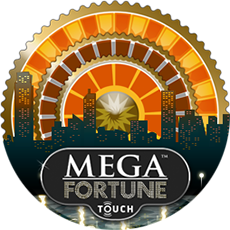If your Spam folder looks like those of most internet users the world over, there are a few messages about ‘male enlargement’ sitting atop some Nigerian princesses and next to outsourcing companies in India which can make you $385 per day. Scattered amongst those is a healthy smattering of offers to buy antidepressant pills over the internet … and a bunch of online casino offers. Now, most online casinos are far more legitimate than the fraudsters who fill your Spam folder … so how do you tell the difference between a legitimate email from an online casino you play at, and a phishing scam? We check out 8 giveaways today.
- 1. Doesn’t Use Your Username or Real Name
Phishers can’t usually be bothered finding out your real name to go with your email address. And it is generally impossible to find out your casino username connected to your email address. So, online casino phishing scams usually begin with ‘Dear Customer’, ‘Dear Player’ or ‘Dear Member’. - 2. Contains Misspellings or Grammatical Errors
Yes, the availability of easy online publishing (without the prerequisite of spelling tests!) means that poor English abounds on the internet. However, one place that is likely to be particularly rife with mistakes is an online casino phishing email. - 3. Promises That Are Too Good to Be True
$20,000 in free spins? Free play money that can be cashed out with no wagering requirements? These promises are never going to be kept, but the people sending the message really don’t care about their reputation for keeping promises … they just care about your login details for creating further mischief. - 4. Alarming Language
If you have received an email notifying you that your ‘Account has been locked’, or that you must ‘Upgrade for access to your funds’, it may well be a phishing email. This sort of thing does occasionally happen at online casinos, but if it has happened, there will also be a copy of the message on your account at the site. - 5. Requests for Excessive Information
If an email is asking you for information that you haven’t had to give to any other online casino site, or which you have already provided and the casino should simply be able to look up, the message is most likely a phishing email. Yes, casinos will occasionally ask questions to verify your identity – but the information shouldn’t include things like your driver’s license number, the security code on your credit card, banking information or username and password. - 6. Addresses That Don’t Match Links
If you hover your mouse over a link in the message and it doesn’t say the same thing as the face text of the link, delete the message immediately. - 7. Shortened URLs
We’re used to seeing shortened URLs thanks to Twitter. However, when they occur in an email message, you shouldn’t click them. Instead, try to discern where the message expects you to go – should you be logging into your account, for example? Use a new browser window and type in the address of your online casino directly into the address bar rather than following the link. - 8. Attachments
An online casino site has almost no reason to send you a message with any attachments, unless you have been engaged in ongoing discussion and you are expecting the message and attachment. Never open an attachment from a sender that should only need to provide you information, not files!
Get to know the EXACT addresses that your online casino uses for customer communication, and always check incoming messages against the legitimate address. This is the easiest way to prevent your becoming the victim of an online casino phishing scam!


 $7,159,773
$7,159,773
 $1,502,157
$1,502,157
 $5,288,206
$5,288,206